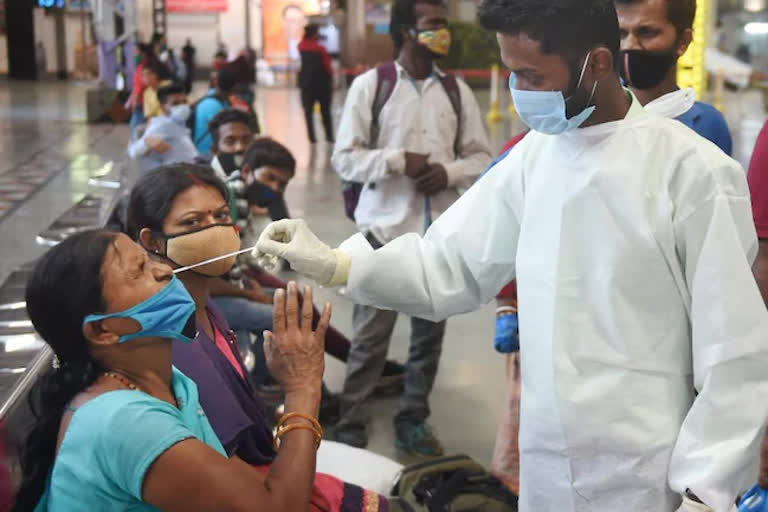New Delhi: India’s long battle against the Covid-19 pandemic is yielding positive results following the fact that 513 districts across the country are reporting a less than 5 per cent positivity rate. According to the Health Ministry statistics, less than 5 per cent positivity has been reported between June 11-17. The situation is improving since April 30 when only 103 districts across the country have been reporting less than 5 per cent positivity.
“The situation further improved from May 21-27, when 290 districts reported less than 5 per cent positivity,” said Lav Agarwal, Joint Secretary in the Union Health Ministry. Notably, the second wave of the Covid-19 pandemic has severely affected India's rural areas as well as tier II and III cities. However, stringent containment measures helped in controlling the country's overall Covid-19 situation.
Read:|India overtakes US as 17.2 cr people receive 1st dose of COVID-19 vaccine: Govt
As on June 18, India has witnessed an almost 85 per cent decline in cases since the highest reported peak in daily new cases reported on May 7 (4,14,188). The number has now come down to 62,480. India also witnessed a decline of 30 per cent in average daily new cases last week. Till May 4, as many as 531 districts have been reporting more than 100 daily cases which have come down to 147 on June 16.
“A reduction of 384 districts indicates containment of infection in relatively limited territories,” said Agarwal while briefing media during a press conference in New Delhi. There is a consistent decline in active cases too with 7.98 lakh active cases at present. “Decline by 78.6 per cent decrease in active cases by more than 29.4 lakhs since the peak on May 10,” Agarwal said. India’s recovery is also witnessing a consistent increase since May 3 (81.8 per cent), it currently stands at 96.0 per cent.
Read:|Steady dip in active Covid-19 cases, less than 2 lakh daily cases: Govt
When asked the reason behind such an improvement, Dr Agarwal said that stringent containment measures along with behavioural change amongst people are the major reason for such improvement. He said that vaccination is also playing a major role in this present scenario. Till date, as many as 27.07 crore vaccine doses have been given to the people. With 62,480 new coronavirus infections being reported in a day, India’s total tally of Covid-19 cases stood to 2,97,62,793, while the death toll climbed to 3,83,490 with 1,587 fresh fatalities, the lowest in 61 days, the Health Ministry said.
Meanwhile, quoting scientific evidence, Dr VK Paul, chairperson of the national task force on Covid-19 said that vaccination reduces 75-80 per cent chances of hospitalization. Dr Paul said, “Studies show that chances of hospitalization are 75-80 less in vaccinated individuals. The possibility of such individuals needing oxygen support is around 8 per cent and the risk of ICU admission is only 6 per cent in vaccinated individuals.”
Referring to the WHO-AIIMS survey, Dr Paul said that seropositivity in people below and above 18 years of age is almost equal. “In persons above 18, the seropositivity rate is 67 per cent and 59 per cent in persons below 18. In urban areas, it is 78 per cent in persons below 18 and 79 per cent in above 18,” he said. Dr Paul said that in rural areas, the seropositivity rate is 56 per cent in persons below 18 years of age and 63 per cent in persons above 18. “The information shows that the children were infected but it was very mild,” he said.
Read:|By July or early Aug, will have enough Covid vaccines to inoculate 1 cr people a day: Centre
Referring to the third wave, Dr Paul, while referring to the study, said that only isolated cases of infection may occur in children. “However, children may also need hospitalization if he or she already has any comorbidities…however, we are prepared to deal with all possible scenarios,” Dr Paul said. When asked about the reopening of school, Dr Paul said that once India gets control over this pandemic, “such situation may arrive when we can open our school.”
“Once all teachers get vaccinated and we change our behaviour, schools can be reopened. This is, of course, a very important issue; we need to look carefully. Because in many other countries’ schools got reopened but the administration had to shut down again as the situation worsened,” said Dr Paul.
